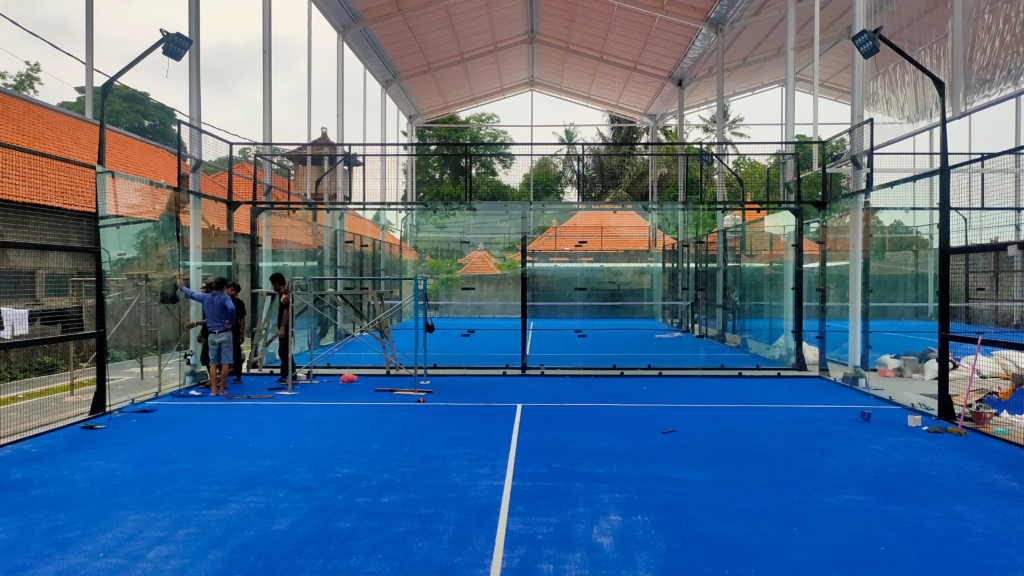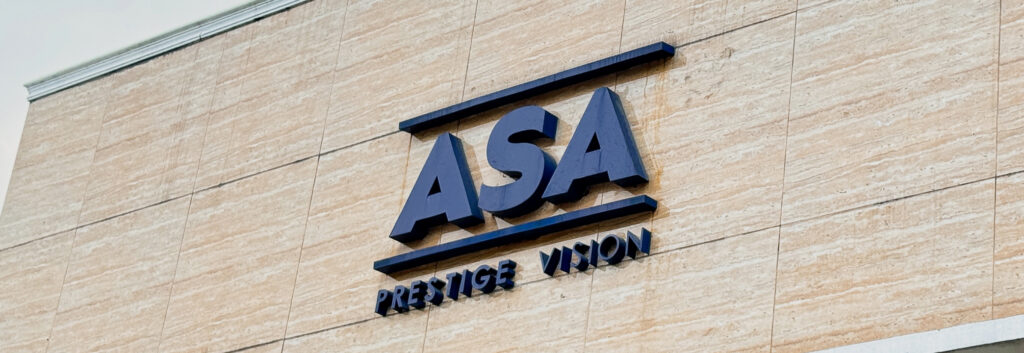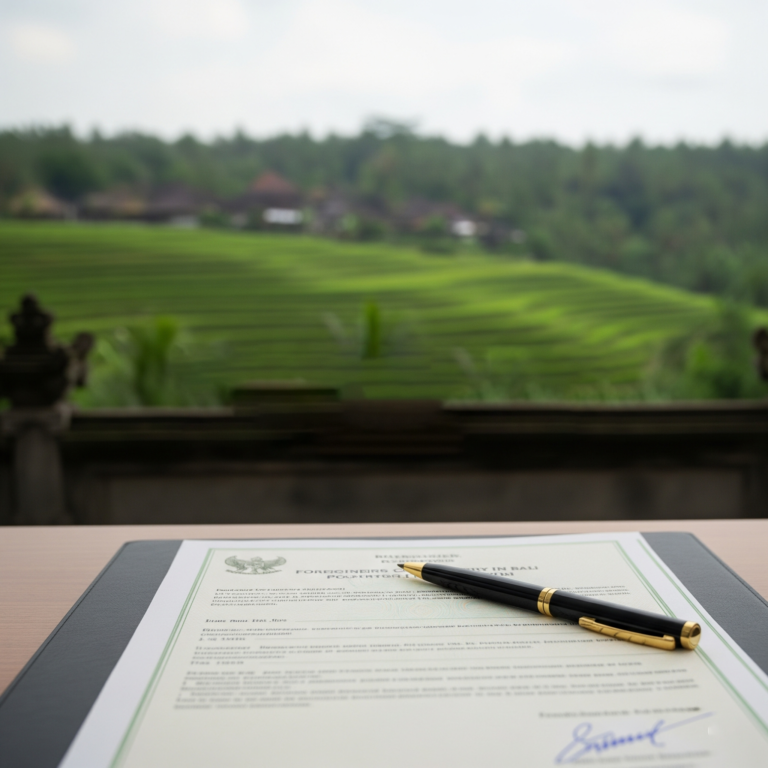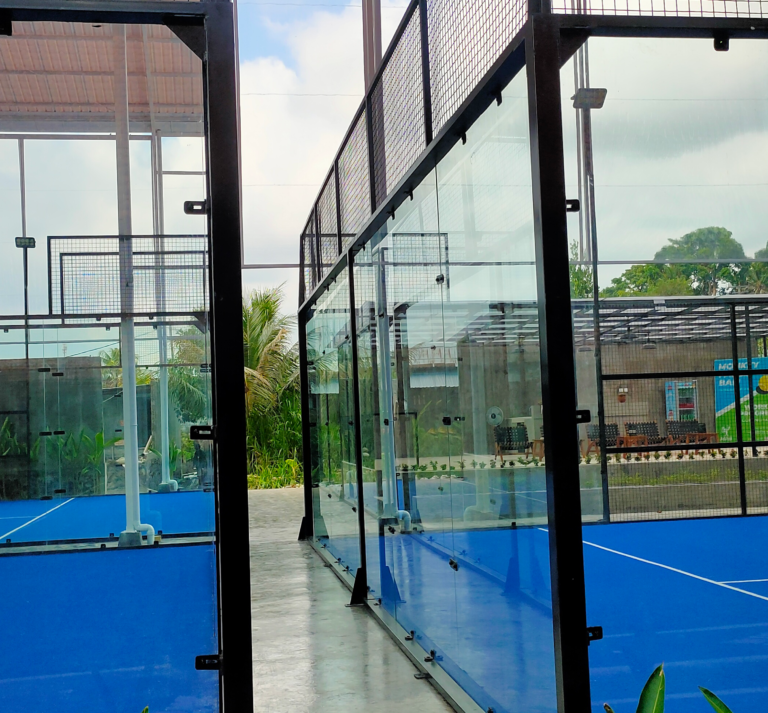Bali’s natural beauty and vibrant lifestyle have made it one of the most exciting places in Southeast Asia for padel enthusiasts. With palm trees swaying in the breeze and the sun setting behind the court, it’s no wonder the sport is booming here. But while the tropical climate is part of Bali’s charm, it also brings a fair share of challenges—especially for padel courts. High heat, intense UV rays, constant humidity, and heavy rainfall can quickly take a toll on your court if not properly managed. This guide will show you how to maintain padel courts in Bali’s heat.
We’ve been building and maintaining padel courts across Bali for years. We’ve seen firsthand how the environment affects court performance and lifespan. This guide offers expert tips. It ensures your padel court withstands the tropical gauntlet. Maintain its pristine condition. Extend its lifespan for years of enjoyable play. This is your ultimate guide to padel court maintenance Bali.
How Bali’s Climate Impacts Your Padel Court
Let’s break down the main environmental factors. These can wear down your court over time.
- Strong UV Radiation & Heat: Constant exposure to UV rays can fade and weaken artificial turf. It makes it brittle and less responsive. Heat causes materials to expand and contract. This can lead to small cracks or warping in the court structure.
- High Humidity & Moisture: High humidity is almost year-round. Mold, algae, and mildew love to grow. This is especially true on turf. Moisture can also corrode metal frames. It compacts the infill (the sand used in turf). This affects ball bounce and surface feel.
- Heavy Rainfall & Drainage: Rainfall in Bali can be intense and unpredictable. Even with a good drainage system, excess water can soak into base layers. This leads to standing water, surface damage, and long-term foundation issues.
Read Also : Indoor vs. Outdoor Padel Courts: Key Differences and Considerations
Daily & Weekly Care: Your First Line of Defense
You don’t need to be a pro to keep your court in good shape. Just a few simple habits, done consistently, can make a big difference. This is crucial for padel court maintenance Bali.
- Debris Removal: Leaves, sand, dust, and organic matter accumulate quickly in Bali.
- Tip: After each use (or at least daily), sweep the court. Use a soft-bristle broom or a leaf blower. Keeping the surface clean looks better. It also prevents mold. It keeps the infill material in good condition.
- Visual Inspection: A quick daily scan can catch problems early.
- Tip: Walk around and check for anything out of place. Look for loose turf seams, water pooling, cracks in the glass, or signs of algae. The earlier you spot a problem, the easier it is to fix.
- Infill Management (for artificial turf courts): The sand infill is vital. It protects turf, ensures stability, and aids ball bounce. This is key for artificial turf maintenance humid weather.
- Tip: Once a week, or more often on busy courts, brush the turf. Use a drag brush to redistribute the sand evenly. This helps prevent hard spots. It keeps the playing surface level and responsive.
Monthly & Quarterly In-Depth Maintenance Protocols
Daily cleaning keeps your court looking great. But Bali’s climate can be relentless. Deeper maintenance is a must. By setting aside time every month and quarter, you’ll keep your court in peak condition. You’ll avoid costly repairs down the road.
- Deep Cleaning of Artificial Turf:
- Tip: Once a month, do a more thorough clean. For tough stains or algae, use a light pressure wash. Use low pressure with a wide spray nozzle. Keep the nozzle about 30 cm away. This avoids damaging the turf. You can also use turf-safe cleaning solutions. Be sure to rinse everything well.
- Inspection and Tightening of Court Structure:
- Tip: Every few months, check all the court’s connections. Inspect metal frames, screws, bolts, and glass supports. Tighten anything that feels loose. If you spot rust, treat it right away. Use a rust-inhibiting primer to stop it from spreading.
- Glass Panel Cleaning: Clear glass is crucial for visibility and safety.
- Tip: Wipe down the panels once a month. Use a soft cloth or squeegee. Use a gentle, non-abrasive cleaner. Avoid harsh chemicals. They might damage the frame. While cleaning, look for chips or cracks. These could become a safety risk.
- Drainage System Check:
- Tip: Clear all gutters and drains every three months. Flush them with water. Make sure everything is flowing properly. This simple habit prevents major headaches later. Effective drainage systems for tropical padel courts are essential.
Annual Professional Maintenance & Repairs
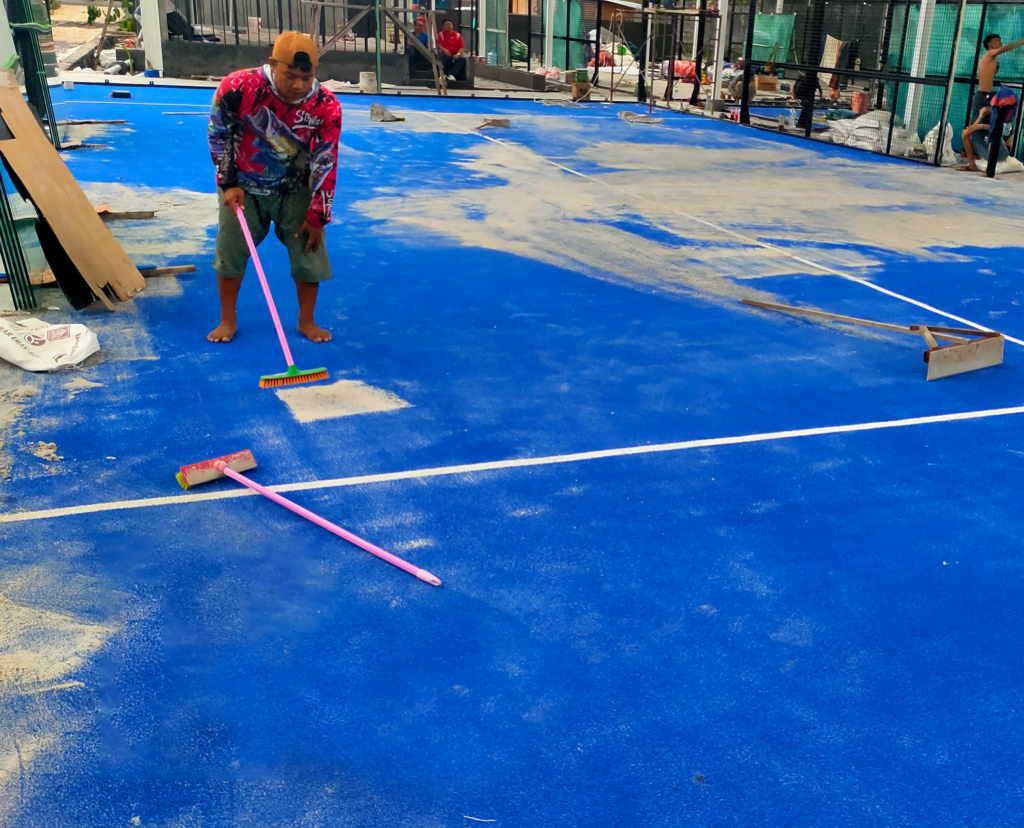
Regular maintenance is crucial. However, an annual professional inspection and service are indispensable. This is true for true longevity, especially in Bali’s climate.
- Professional Turf Deep Cleaning & Grooming: Dirt can settle deep into the turf over time. This affects its performance. Professional-grade equipment allows for a deep clean. It removes debris that regular sweeping might miss. It restores the turf’s look and feel. It re-levels the infill for smooth, consistent play.
- Comprehensive Structural Integrity Check: A thorough inspection of the entire court is vital. This includes the steel framing to the foundation layers. It can reveal early signs of stress or wear. Catching these issues early avoids bigger, more expensive repairs later on.
- Re-sanding or Infill Replenishment: Infill plays a critical role in safety and playability. It tends to shift or decrease over time. This is especially true on busy courts. Topping it up ensures the turf remains cushioned. The bounce stays predictable. Turf fibers are properly supported.
- Minor Repairs & Preventative Measures: Small things may not seem urgent. These include tiny turf tears, early rust spots, or loosening joints. But they can quickly grow into major problems. A yearly tune-up is perfect. It handles these minor repairs. It prevents interference with the game or long-term damage. For these needs, consider professional padel court maintenance services Bali.
Troubleshooting Common Padel Court Problems in Bali’s Heat
Here are some common issues faced by tropical climate padel court owners in Bali. Learn how to approach them.
- Algae/Moss Growth on Turf:
- Cause: High humidity, shade, and organic debris.
- Solution: Clean your court regularly. Keep drains clear. Apply turf-safe anti-algae treatments if needed. If possible, increase sun exposure. This keeps the surface dry and mold-free. These are effective anti-algae solutions for sports courts.
- Fading/Brittle Turf:
- Cause: Intense UV radiation.
- Solution: Choose UV-resistant padel turf from the start. If damage is done, and turf feels brittle or too faded, replacement may be the only solution. This is often the best padel court turf for humid climates.
- Corroded Metal Structures:
- Cause: High humidity and salt air (if near the coast).
- Solution: Regularly inspect for rust. Treat small spots immediately. Use rust converters or primers. When building a new court, opt for marine-grade or galvanized steel. This minimizes future problems.
- Infill Compaction & Hardening:
- Cause: Lack of regular brushing, heavy foot traffic, and moisture.
- Solution: Make infill brushing a weekly habit. If it’s already compacted, a deep grooming session may be needed. This restores performance.
- Poor Drainage & Water Pooling:
- Cause: Clogged drains, improper court slope, or compromised base layers.
- Solution: Clean all drainage points. Flush them with water regularly. If the problem persists, it may be time to look at the underlying construction.
Read Also : Avoid Costly Mistakes: The Risks of Non-Tempered Padel Court Glass
The Foundation of Durability: Building it Right from the Start
Ongoing maintenance is crucial. However, it all starts with how the court is built. The best way to avoid problems later is to make smart construction decisions from the beginning. This is especially true in a climate as tough as Bali’s. This also impacts the cost to maintain a padel court in tropical weather over its lifespan.
At ASA Group Indonesia, we pride ourselves on building padel courts engineered for Bali. This means:
- Superior Materials: We use only the best materials. Inferior materials degrade quickly. This leads to costly repairs, compromised playability, and a significantly shorter lifespan for your investment.
- Expert Drainage Solutions: Our construction incorporates advanced drainage systems. We also ensure proper base preparation. This guarantees rapid water runoff. It prevents pooling. It protects the court’s integrity.
- Proven Construction Techniques: Our experienced team employs refined techniques. These are honed over years of building in tropical environments. Every component is installed to maximize durability and performance.
Choosing the right contractor ensures your court is a long-term asset. It avoids recurring problems. Trust our Bali padel court services.
Conclusion: Protect Your Investment, Enhance Your Game
A padel court in Bali is a fantastic asset. It offers endless hours of enjoyment. However, its longevity hinges on a proactive and consistent padel court maintenance Bali. This regimen must be tailored to the island’s challenging tropical climate. By following these expert tips—from daily sweeps to annual professional check-ups—you can significantly extend the life of your court. Maintain optimal playing conditions. Protect your valuable investment.
For professional padel court construction, comprehensive maintenance services, or expert advice specific to Bali’s unique conditions, contact ASA Group Indonesia. We are dedicated to ensuring your tropical climate padel court stands the test of Bali’s heat, year after year. We provide a premium playing experience every time.
Contact ASA Group Indonesia today to discuss your padel court needs in Bali!





